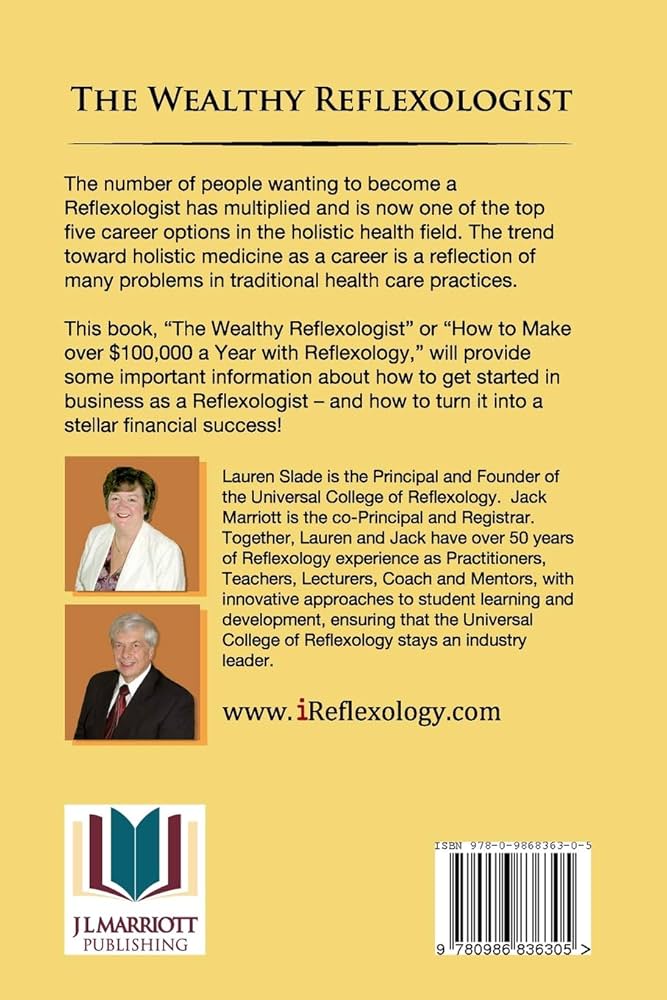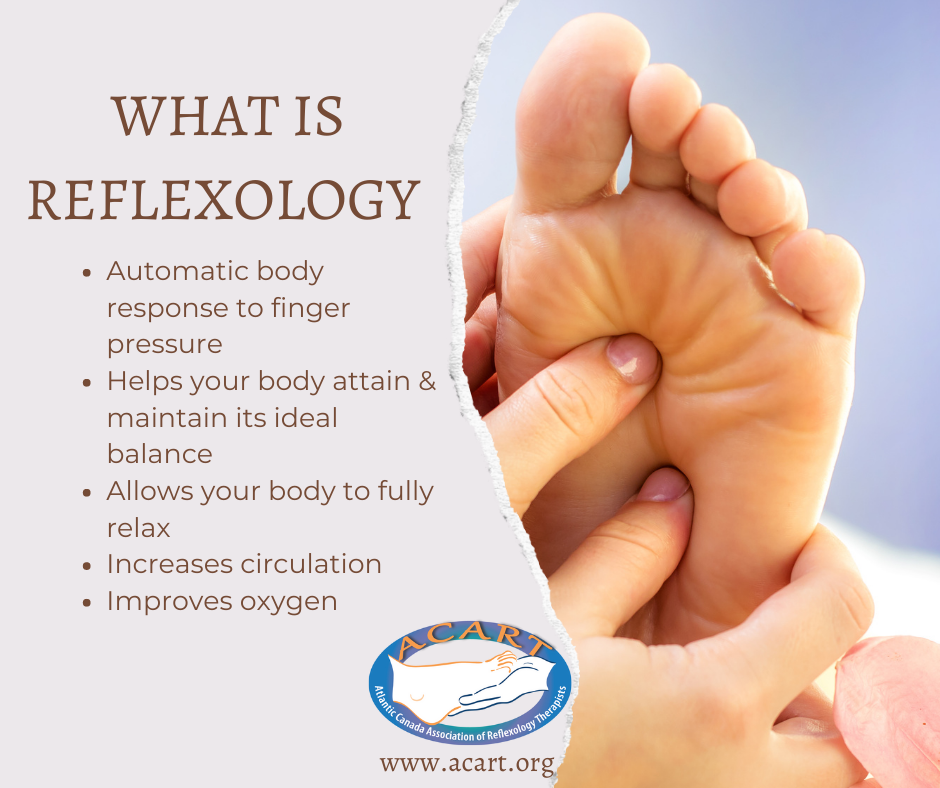
How to Become a Reflexology Expert: Step-by-Step Guide
Are you fascinated by the idea of helping others heal through the art of touch? If so, reflexology might be the perfect path for you.
This ancient practice, rooted in the belief that specific points on your feet, hands, and ears are connected to different parts of your body, offers a unique opportunity to promote wellness and relaxation. But how do you transform this interest into a fulfilling career?
The journey to becoming a reflexologist isn’t just about learning techniques; it’s about understanding the profound impact you can have on someone’s life. In this guide, you’ll discover the essential steps to mastering reflexology and turning your passion into a profession. Ready to explore how you can make a difference, one touch at a time? Let’s dive in and uncover the secrets to becoming a successful reflexologist.
Understanding Reflexology
Reflexology is a therapeutic practice focusing on feet, hands, and ears. It taps into the body’s natural healing process. Practitioners apply pressure on specific points. These points link to various body systems and organs. The goal? To promote balance and wellness.
Many find reflexology relaxing and soothing. It can offer relief from stress and tension. As more people seek holistic health, reflexology grows in popularity. Discovering its principles and benefits can be the first step in becoming a reflexologist.
Principles Of Reflexology
Reflexology is based on the concept of energy zones. Ten vertical zones run through the body. Each zone corresponds to specific areas on the feet and hands. By applying pressure, practitioners aim to clear energy blockages. This helps the body maintain a natural balance.
The practice relies on the body’s innate ability to heal. Reflexologists use their hands to detect imbalances. They use specific techniques to stimulate these reflex points. This process enhances overall health and well-being.
Benefits Of Reflexology
Reflexology offers numerous health benefits. It can reduce stress and promote relaxation. Many people find it helps with pain management. Some report relief from headaches and migraines. Reflexology can also improve circulation and boost energy.
It supports the body’s detoxification process. Regular sessions may enhance sleep quality. Many users experience a sense of overall well-being. Reflexology is a gentle therapy. It’s suitable for people of all ages.

Essential Skills
Developing essential reflexology skills involves understanding anatomy, mastering hand techniques, and learning pressure point therapy. Effective communication and empathy also play crucial roles in client interactions. Regular practice and continuous education enhance proficiency and confidence in this healing art.
Becoming a reflexologist involves mastering a variety of essential skills that are crucial for success in this field. These skills not only help you perform effective treatments but also ensure you build a strong rapport with your clients. Whether you’re just starting or looking to refine your abilities, focusing on these skills will greatly enhance your practice.
Communication Skills
Effective communication is vital in reflexology. You need to understand your client’s needs and concerns to tailor your approach accordingly. Listening actively allows you to gather valuable insights that can improve the treatment experience. Try asking open-ended questions to encourage clients to share more about their health and wellness goals. This not only builds trust but also demonstrates your genuine interest in their well-being. Clear communication extends beyond words; your body language and facial expressions should convey empathy and attentiveness.
Technical Skills
Technical skills are the backbone of your reflexology practice. These include a deep understanding of reflex points on the feet, hands, and ears and how they correspond to different parts of the body. Regular practice is key. Consider setting aside time each week to refine your techniques, perhaps by practicing on friends or family. Keeping up with the latest research and techniques can also give you an edge. Have you ever thought about attending workshops or training sessions to enhance your skills? Both communication and technical skills are essential to becoming a successful reflexologist. Which skill do you think you need to improve the most to enhance your practice?
Educational Requirements
Starting a career in reflexology can be a rewarding journey, allowing you to make a positive impact on people’s well-being. To become proficient, understanding the educational path is crucial. It’s not just about learning techniques; it’s about gaining a solid foundation in anatomy and physiology, and honing your skills through practice.
Certification Programs
Certification programs are your first step in becoming a qualified reflexologist. These programs provide essential training in the basics of reflexology. You’ll learn how to apply pressure to specific points on the feet, hands, and ears to promote health.
Most certification courses last between six months to a year. They often involve both classroom learning and hands-on practice. Look for programs accredited by recognized reflexology associations to ensure quality education.
Consider how flexible your schedule is. Some programs offer evening or weekend classes, which can be a great option if you are balancing work or family commitments.
Advanced Courses
Once certified, you might want to delve deeper into specialized areas. Advanced courses can help you expand your skills and knowledge. These courses often cover advanced techniques, such as working with specific health conditions or using reflexology as part of a broader wellness approach.
Think about what areas you’re passionate about. Are you interested in working with athletes, or perhaps focusing on stress relief? Choosing advanced courses aligned with your interests can enhance your practice.
Advanced courses can also help you stay updated with the latest research and methods in reflexology. This continual learning can make your practice more effective and keep your skills sharp.
Reflect on what you want from your reflexology career. Are you prepared to invest time in advanced learning? The depth of your education can directly affect your impact on clients. What kind of reflexologist do you want to be?
Practical Experience
Gaining practical experience is crucial for aspiring reflexologists. It bridges the gap between theory and real-world application. This hands-on journey helps you refine techniques, understand client needs, and build confidence.
Hands-on Practice
Hands-on practice is essential in reflexology. Start by practicing on friends and family. This allows you to apply techniques learned in class. You get to improve your touch and pressure skills. Feedback helps you adjust and learn.
Regular practice enhances muscle memory. It helps you remember reflex points. Each session boosts your confidence. You feel more comfortable working with clients.
Internships And Workshops
Internships offer real-world experience. They provide exposure to diverse client needs. Working under experienced reflexologists is beneficial. You learn how to adapt techniques based on client feedback.
Workshops are another valuable resource. They offer intensive training sessions. You can explore new techniques and tools. Workshops often include interactive sessions. This fosters peer learning and exchange of ideas.
Both internships and workshops expand your network. You meet professionals and potential clients. Networking opens doors to more learning opportunities.
Building A Client Base
Establishing a strong client base is crucial for reflexologists. It ensures a steady flow of business and helps build a reputation. New reflexologists often face challenges in attracting clients. But, with the right strategies, you can grow your client list effectively. The following tips can help you on your journey.
Networking Strategies
Networking is vital in the reflexology business. Attend local wellness events to meet potential clients. Join reflexology groups or forums. Share your expertise and learn from others. Collaborate with other wellness professionals. They can refer clients to you. Host workshops or free sessions to showcase your skills. This builds trust and awareness in your community.
Marketing Techniques
Effective marketing can expand your client base. Create a professional website with clear information. Include your services, pricing, and contact details. Use social media platforms to reach a wider audience. Share testimonials from satisfied clients. Offer promotions or discounts for first-time clients. This encourages them to try your services. Distribute flyers in local health centers or clinics. Ensure they highlight your unique approach to reflexology.

Continual Learning
Embarking on the journey to become a reflexologist involves continual learning. Acquire foundational skills through accredited courses and practical sessions. Stay updated with new techniques and research to enhance your practice. Regular workshops and seminars offer valuable insights and networking opportunities, fostering growth and expertise in the field of reflexology.
Continual learning is key to becoming a successful reflexologist. The field is ever-evolving, with new techniques and research emerging regularly. By committing to ongoing education, you not only enhance your skills but also provide the best care for your clients.
Staying Updated With Trends
The world of reflexology is dynamic. New studies, innovative techniques, and fresh insights can transform your practice. Subscribe to industry journals and newsletters to get the latest information straight to your inbox. Join online forums and groups. These platforms are gold mines for sharing experiences and learning from peers. Engaging with a community of like-minded professionals can inspire new approaches to your practice. Set a goal to read at least one research article or book on reflexology each month. This regular habit can significantly deepen your understanding and keep your techniques fresh. Imagine the confidence boost when you can discuss the latest trends with clients.
Participating In Conferences
Conferences are excellent opportunities for growth. They bring together experts and practitioners who share their knowledge and experiences. Attending these events can broaden your perspective and introduce you to groundbreaking ideas. Don’t just sit back and listen. Engage actively by asking questions and participating in discussions. This active involvement can lead to networking opportunities and even mentorship connections. Consider presenting your own experiences and insights. Sharing your journey can establish you as a thought leader and open doors to new opportunities. Plus, it’s a great way to give back to the community that supports you. Have you attended a conference that changed your outlook? Reflecting on these experiences can reinforce your commitment to continual learning.
Ethical Considerations
Becoming a reflexologist involves understanding ethical guidelines. These ensure trust and respect between you and your clients. Ethical considerations are vital for maintaining professionalism. They protect both the reflexologist and the client. This section covers important ethical aspects.
Ethics in reflexology guide your actions and decisions. They help build a reputable practice. Adhering to these principles is key to success. Let’s explore essential aspects of ethics in reflexology.
Client Confidentiality
Respecting client privacy is crucial. Personal information must remain confidential. Sharing details without permission is unethical. Keep records secure to protect client data. Trust is built on confidentiality.
Discuss privacy policies with clients. Ensure they understand their rights. Secure storage systems are necessary. Confidentiality fosters a safe environment. Clients need assurance their information is safe.
Professional Conduct
Maintain a high standard of behavior. Dress appropriately for sessions. Punctuality shows respect for clients. Communicate clearly and politely. Listen actively to client concerns.
Avoid making false claims about reflexology benefits. Stay updated on industry standards. Continuous learning is part of professional conduct. Treat every client with respect. Professionalism builds a reliable practice.

Frequently Asked Questions
What Qualifications Do I Need For Reflexology?
To become a reflexologist, you typically need a diploma or certification in reflexology. Many programs require prior education in health or therapy fields. Check for courses accredited by reputable associations to ensure quality training. Continuous education and hands-on experience are also vital for a successful career.
How Long Does Reflexology Training Take?
Reflexology training typically takes between six months to a year. The duration depends on the program and study mode, full-time or part-time. Courses cover anatomy, physiology, and practical reflexology techniques. Some programs may offer accelerated options for those with prior health education.
Is Reflexology A Good Career Choice?
Reflexology can be a rewarding career choice for those interested in holistic health. It offers flexible work hours and the opportunity to help others improve their well-being. As alternative therapies gain popularity, demand for skilled reflexologists is growing, offering potential for a sustainable career.
How Much Can A Reflexologist Earn?
A reflexologist’s earnings vary based on location, experience, and client base. On average, reflexologists earn between $30 to $70 per hour. Building a strong client base and offering specialized services can increase income. Working in wellness centers or starting a private practice can also affect earnings.
Conclusion
Becoming a reflexologist is a rewarding journey. It involves learning and practice. Start by understanding the basics of reflexology. Then, take a certified course to gain skills. Practice regularly to improve your technique. Building a client base requires patience and dedication.
Always listen to your clients’ needs. This helps build trust and a good reputation. Stay updated with new techniques and trends. Networking with other professionals can also be helpful. Remember, helping others is at the heart of reflexology. With commitment, you can create a successful career in this field.




